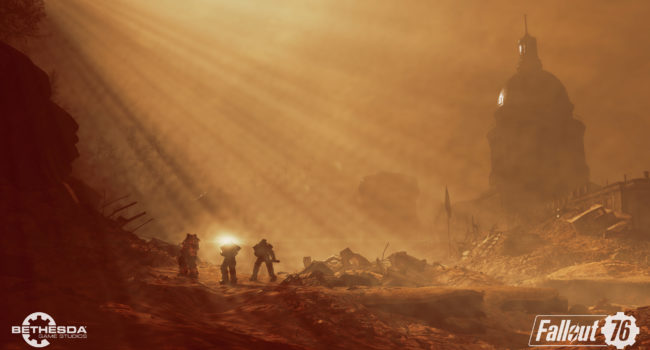MORGANTOWN — The release of “Fallout 76” will put three WVU researchers to work as they study how the game’s post-apocalyptic depictions of West Virginia influence perceptions of the state and its people.
The prequel to the Fallout video game series will have video-gamers blasting away mutated monsters, exploring nuked country roads and rebuilding America, a noble duty that begins in virtual West Virginia, according to a press release from WVU.
“It presents a unique opportunity to look at how people experience the state and whether/ how its culture is represented,” Jaime Banks, assistant professor in the Department of Communication Studies said, in the press release. “We’ve studied avatars and gender identity and racial identity in games. But we don’t know very much about regional identities.”
The premise of “Fallout 76” is this: The year is 2102. Nuclear war ravaged much of planet Earth 25 years earlier. The gamer is a survivor who emerges from a fallout shelter buried in the hills of West Virginia. It’s Reclamation Day, and you must re-colonize the nuclear post-apocalyptic wasteland.
The game includes landmarks around West Virginia, including WVU’s Woodburn Hall.
Banks and her colleagues, Nick Bowman and Christine Rittenour, both associate professors in communication studies, want to know how players engage these representations of West Virginia and how they deal with the intersections of the social/spatial/historical aspects compared to the gameplay elements.
They’re conducting a three-phase survey of “Fallout 76” players and are seeking participants’ predispositions of the state with the first round of the survey.
Because there are no game-driven characters in the game (other than robots and creatures of folklore), every player controls an avatar that is, narratively, a West Virginian.
“For a research department that studies communication technology and how folks interact with a mediated world, this seemed too good to pass up,” Bowman said.
They’ll follow up with players in a few weeks to capture their thoughts as they’ve experienced the game and again in January for a final survey.
After collecting the data, the trio will analyze, write and present their findings throughout 2019 at various conferences and workshops.
The WVU Humanities Center is supporting the study. Another goal of the research is to help West Virginians understand how representations of their spaces and cultures contribute to how people view them.
“This game, the best we can tell, breaks away from the common practice of portraying West Virginians stereotypically,” Bowman said.
West Virginians are typically viewed as a proud people, Rittenour said in the release, and Fallout 76 appears to contribute to that “pride” vibe.
“When you pull up the video game, you really feel that pride component,” she said. “The game is so sophisticated. It’s an exciting opportunity if you’re a West Virginian and you get that feeling while playing the game.” “Fallout 76” also draws on West Virginia folklore. Players will encounter the Mothman, the Flatwoods Monster and the Beast of Grafton, among other creepy creatures standing in the way of rebuilding America.
“In media over the years, West Virginians have been stereotyped as being backwards and uneducated,” Banks said. “But Fallout 76 seems to flip that script. They built this fallout shelter and survived. Now they’re the saviors of humanity.”




